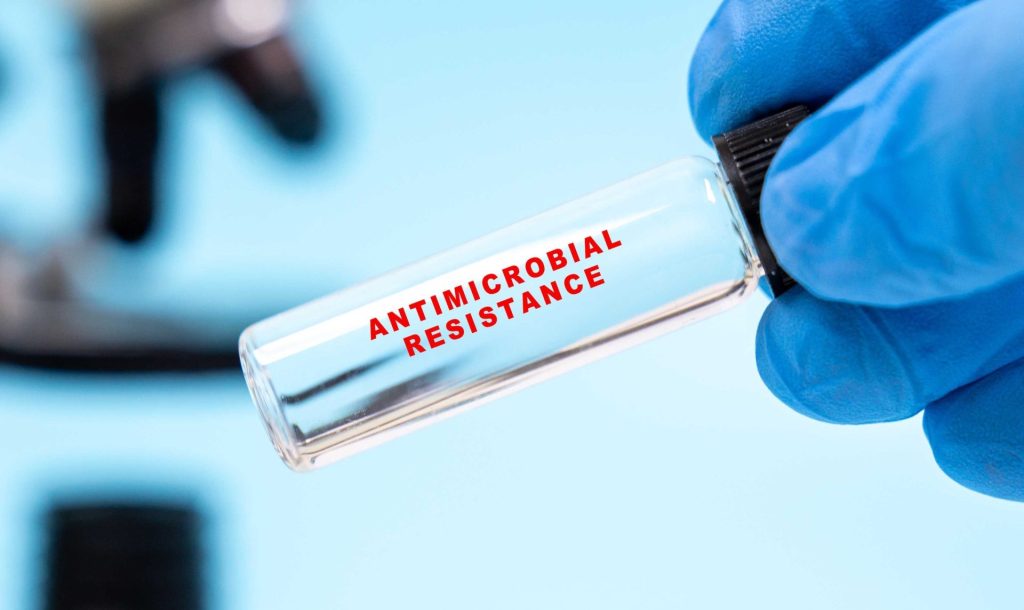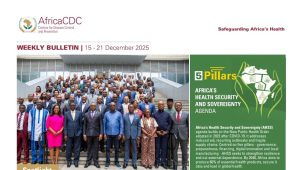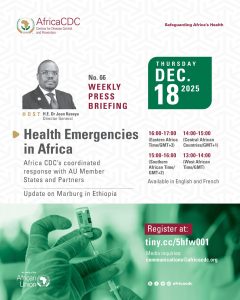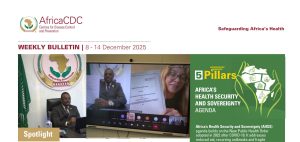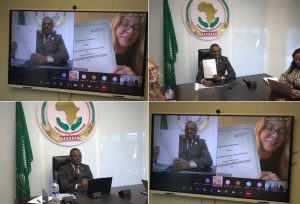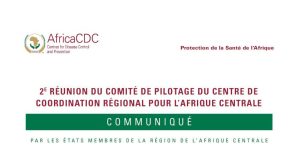The Africa Centres for Disease Control and Prevention (Africa CDC), under its mandate as the specialized technical health agency of the African Union Commission, continues to lead continental efforts to mitigate antimicrobial resistance (AMR).
As part of this effort, the Africa CDC initiated peer to peer learning exchange among Africa Union Member States to advance surveillance capacity and shaping continental objectives to address AMR.
The most recent exchange visit brought technical experts from South Sudan’s line ministries for a learning exchange at the National Institute for Communicable Diseases (NICD) in South Africa’s Healthcare-Associated Infections, Antimicrobial Resistance and Mycoses (CHARM) department.
The visit focused on strengthening South Sudan’s national AMR surveillance system by providing practical exposure to best practices in laboratory systems, data management tools, and regional coordination mechanisms.
“This visit marks a significant milestone for South Sudan as we plan to apply this knowledge to our own context in setting up our national AMR surveillance plan,” said Dr. Abe Abias, Head of the AMR Program in South Sudan.
He noted that South Sudan has a strong One Health multisectoral coordination mechanism, and the learning experience was important to begin AMR data collection in South Sudan.
Fowzia Mohamed Sheikh, AMR Officer, Eastern RCC explained thatSouth Sudan is just starting their AMR surveillance initiatives, and this visit was to learn from South Africa’s well-established surveillance system. . These were some of the clear outcomes from this visit:
Sheikh said a strong partnership between the two countries is expected, as South African experts will be supporting the country in reviewing their National AMR Surveillance Plan once drafted.
“There is clear guidance and understanding on implementing standardized AMR surveillance systems at national, sub-national, and facility levels,” she said adding enhanced knowledge and technical skills among key staff to support AMR surveillance program implementation in South Sudan.
The visit will lead to Development of a context-specific National AMR Surveillance Plan to guide the phased implementation and scale-up of surveillance efforts across South Sudan, Sheikh said.
South Africa’s NICD continues to play a leadership role in the region and serves as a hub for collaborative learning. During the five-day visit, the South Sudanese delegation toured NICD laboratories, observed antimicrobial susceptibility testing procedures, reviewed quality assurance protocols, and explored strategies for integrating AMR surveillance data into national health systems.
The delegation also received technical discussions on the WHO Global Antimicrobial Resistance and Use Surveillance System (GLASS) framework, along with insights into Africa CDC- and Fleming Fund-supported initiatives.
“NICD will continue to support South Sudan and other AU Member States through similar exchange visits through the collaboration with Africa CDC,” said Professor Olga Perovic, Principal Pathologist at NICD-CHARM.
Africa CDC has supported South Sudan in developing its National Action Plan on AMR in 2023. The Africa CDC’s AMR Surveillance Exchange Visit Initiative was launched in response to the growing threat of AMR in Africa, where nearly 1.3 million deaths were attributed to AMR in 2019. Despite this burden, surveillance infrastructure remains limited in many AU Member States. This initiative forms part of a broader strategy to strengthen AMR surveillance systems across the continent .
Surveillance is critical for understanding AMR trends and pathogen patterns and Africa experiences patchy and fragmented surveillance systems as these are not well coordinated at National Level particularly in low-income countries.
Africa CDC remains committed to engaging AU Member States on AMR surveillance and to supporting initiatives that promote excellence in AMR prevention, containment, and control across the continent. These international exchange visits are a key component of efforts to build technical capacity and leverage existing resources in the fight against AMR in Africa.

